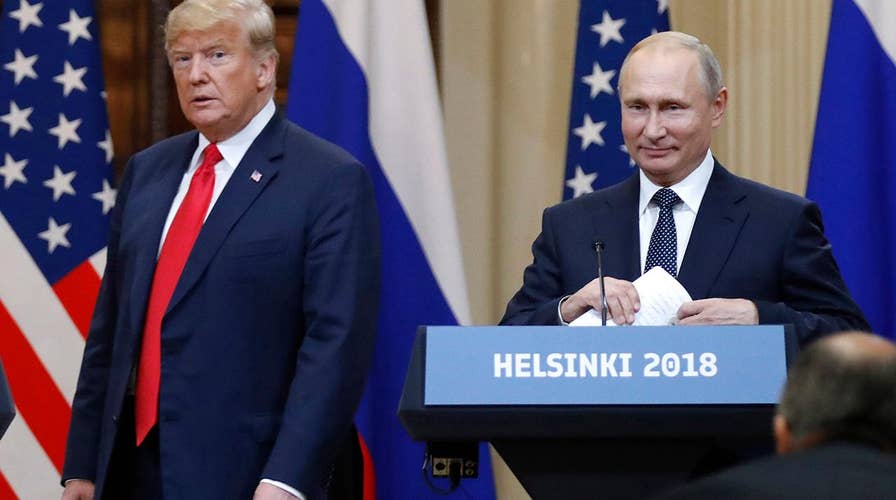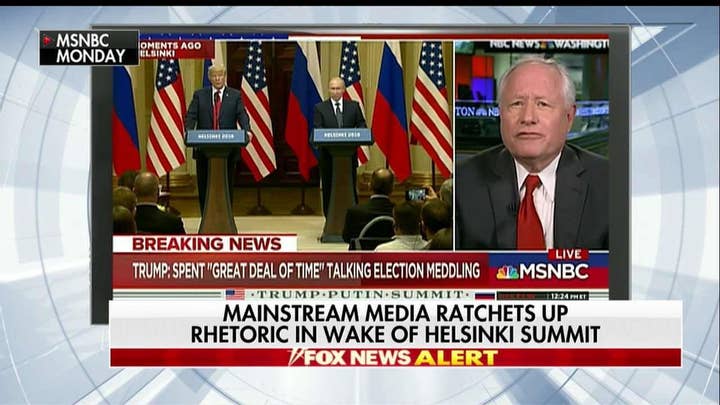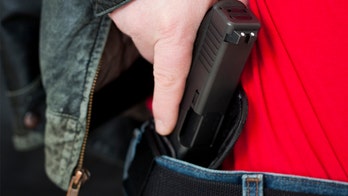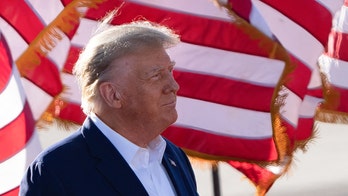President Trump’s former Press Secretary Sean Spicer acknowledged on Sunday that his former boss should have been quicker in clarifying his comments during a summit with Russian President Vladimir Putin last week about Moscow’s meddling in the 2016 presidential election, but blamed the media for blowing the issue out of proportion.
Speaking to Howard Kurtz on Fox News’ “Media Buzz” on Sunday, Spicer said that Trump had admitted to fumbling his words when he appeared to side with Putin and cast doubts on U.S. intelligence conclusions about Russian meddling, but added that Trump in the past had spoken very clearly about Russian hacking.
“I think the issue is the degree and intensity with which they went after him,” Spicer said of the media. “There was this fury from the media that a lot of folks thought they had to react to.”
Spicer added: “Most Republicans, most Americans, are glad that he made it clear.”
While Spicer is correct that most Republican voters across the country approve of Trumps handling of the summit in Finland with Putin, recent polling shows that half of Americans do not.
According to a Washington Post-ABC News poll released on Sunday, 50 percent of Americans disapprove of how the president dealt with his summit with Putin, with only 33 percent approving of it. When asked about Trump casting doubts about U.S. intelligence in regards to Russian meddling, the number jumped to 56 percent disapproving to just 29 percent approving.
Trump's public doubting of Russia's culpability for interference in 2016 — though he tried to "clarify" his remarks a day later — sparked bipartisan condemnation in Washington and sparked congressional lawmakers to look once again for ways to tighten sanctions on the longtime U.S. foe.
By the time Trump arrived back in the U.S., the parade of critical statements had become a stampede, leaving the president the most isolated he'd been in the White House since last year's controversy over white supremacist protesters in Charlottesville.
Trump waited 27 hours, sent five tweets and sat for two television interviews after his initial comments in Helsinki before claiming he'd used a confusing "double negative" and meant "would" instead of "wouldn't" in a key sentence at his press conference about who was responsible for election meddling.
"The sentence should have been: I don't see any reason why I wouldn't -- or why it wouldn't be Russia," the president said Tuesday before a meeting with Republican members of Congress.
The next day brought a fresh challenge. Trump appeared to answer "no" to a reporter's question asking whether Russia was still targeting the U.S. While hours later, Press Secretary Sarah Sanders emerged to say Trump had merely tried to put a stop to the questioning by saying "no," although he continued discussing Russia after that.
And Sanders created a fresh headache for the administration when she said the White House was still reviewing a proposal from Putin to allow access by Russian law enforcement officials to Americans whom the Kremlin accuses of unspecified crimes in return for U.S. access to interrogations of Russian agents indicted for their alleged roles in interfering in the 2016 election. The State Department, by contrast, rejected the proposal — which Trump days earlier had called an "incredible offer — as "absurd."
Despite the blowback inside the Beltway for Helsinki, the new poll suggests that it has done little to shift attitudes toward Trump overall. An average of recent polls compiled by Real Clear Politics finds that just under 53 percent of Americans disapprove of the president compared to just over 43 percent who approve.
President Barack Obama saw 46 percent of Americans having
favorable views of him at the same point in his presidency, July 2010, while 46 percent disapproved. Similarly, 69 percent of Americans approved of President George W. Bush in July 2002, while 24 percent disapproved.
The Associated Press contributed to this report.






